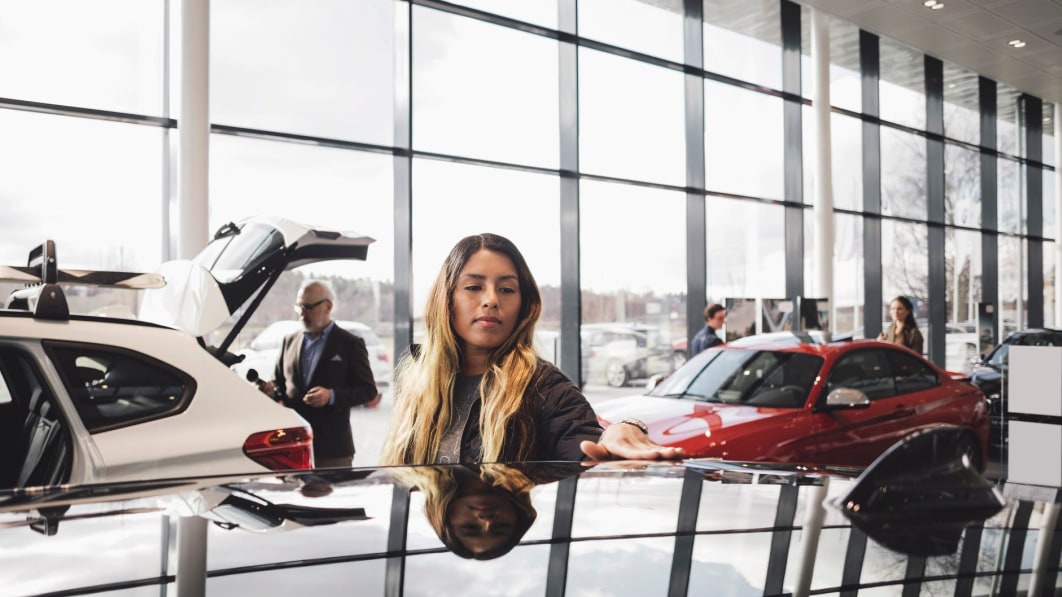dealer lots in the future.
Maskot/Getty Images
- After Tesla eschewed the dealership, EVs are poised to change the way we shop for cars.
- Younger shoppers won’t have patience for long trips to the dealership.
- Changes to the car-buying experience won’t be limited to EV buying.
Electric cars are changing the way we shop for and purchase vehicles, and dealerships are scrambling to adapt.
When Elon Musk‘s Tesla started selling its cars through stores rather than dealerships a decade ago, the industry was skeptical of the move. The dealership model, in which retailers buy from automakers and sell vehicles to consumers, has been protected for nearly a century by robust franchise laws. It’s how you sold cars in America.
Tesla spent years beating back these laws, with some success. Startups like Rivian and Lucid have mimicked the model, selling without dealer networks in place after Tesla set the precedent for EV buying.
Then, car shopping in the pandemic and a prolonged chip shortage that strained inventory trained more buyers to order vehicles from the factory and wait rather than driving off the lot that day in a new set of wheels. This has led car manufacturers and dealers alike to operate on lower volumes and do more build-to-order business.
The role of the dealer is changing as a result. Thanks to the disruption caused by EVs, car shoppers of all kinds can expect to spend less time wandering dealership lots, talking with salespeople, and haggling over pricing.
“This is a movement that is going to happen within car purchasing — all car purchasing,” said Karl Brauer, executive analyst for iSeeCars. “It will be more critical to EV sales and more expected from EV customers, but will start to migrate as younger and younger buyers enter the market.”
Younger shoppers have become accustomed to buying anything they want online, and won’t have patience for long visits to brick-and-mortar stores, he said.
Dealerships are already changing
For car companies, there are pros and cons to both the direct sales and dealerships. The direct-to-consumer sales model used by startups like Tesla and Rivian create a more streamlined approach to automotive retail and gives the company more control over pricing and customer experience.
However, without an established retail network, Tesla in particular has struggled with vehicle maintenance and repairs. Newer startups like Rivian and…
Click Here to Read the Full Original Article at Autoblog…

